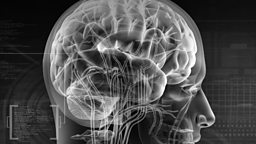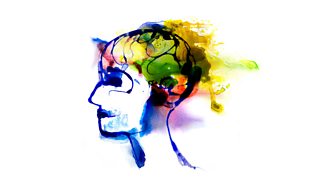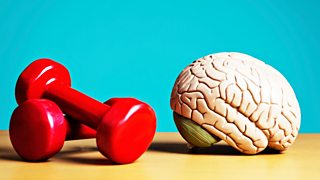How you can re-programme your brain
Are we hard-wired machines, running on circuits we can’t alter, with a life pre-determined by the brain we are born with? Or are we able to rewire and re-programme our own mind and control our own destiny?
In Destiny and the Brain, Neuroscientist Hannah Critchlow asks what the latest brain research might be telling us about ideas of free will, nature versus nurture, and destiny.
Your brain isn’t fixed as an adult
At the dawn of neuroscience, it was an established principle that all of the neurons in the brain are created before birth and repair of a damaged brain isn’t possible.
Parts of the brain might be plastic, meaning they are able to adapt, grow and even regenerate.
For years, neuroscientists presumed that the structure of the adult brain was fixed. We were stuck with what we’d got.
But by the 1960s experimental evidence started to emerge suggesting the contrary: that in fact parts of the brain might be plastic, meaning they are able to adapt, grow and even regenerate.
What London black cab drivers revealed about our brains
Hop in the back of a London black cab, offer up your destination, and the driver is duty-bound to take you there by the fastest possible route. In order to do this, the cab driver has to memorise all the roads in London. No mean feat. Mastering “The Knowledge” normally takes two to four years.

Neuroscientists studying cabbies discovered that while this giant act of memorisation was undertaken, significant changes occurred in a region of the driver’s brain called the hippocampus. They found, using new neuroimaging technology, that it actually got bigger.
This had huge implications. It suggested that the brain we have is not the brain we are fated to have forever, and that we have the ability to make changes. It raised the question: can we hone our brains in the same way that we can a muscle, to achieve anything we want?
Healing your mind
Experiments have proven that the brain retains the capacity for large-scale change – in structure and function – well into our 60s, 70s, and 80s. One of the most important of these changes is the growth of new neurons, known as neurogenesis. This holds huge promise for our ability to heal, says Sharon Begley, author of The Plastic Brain.
Cognitive Behavioural Therapy, or CBT, is a talking therapy that can help you manage your problems by changing the way you think and behave. When we are taught to think about our life experiences differently, during this kind of psychological intervention, it can actually act back on the structure and function of the brain, says Sharon: “The power of neuroplasticity means we have the ability to heal in profound ways.”
Many people are of course unable to “think” their way out of depression. Does this mean they are to blame? No, says Sharon. The idea that whatever has gone wrong in the brain can be fixed is definitely a step too far.
The best ways to de-stress your brain

Dr Hannah Critchlow, Neuroscientist at Cambridge University, on how calming techniques like mindfulness can help build a better brain.
What plasticity means for gender roles
Biological determinism can categorise and seriously limit individuals. For example, there’s an established expectation that your behaviour is based on which sex chromosomes you possess.
We can escape the outmoded and old-fashioned preconceptions about gender – and the restrictions they impose. Women are irrational and men unemotional? Think again.
Gina Rippon, a cognitive neuroscientist and author of The Gendered Brain, questioned the idea that men and women’s brains are different and those differences were fixed. “The brain is much more of an active agent in the world than we ever realised, and therefore the world, and what’s in the world, will have much more impact than we ever thought,” says the author. This means we can revisit the conclusions about men’s and women’s brains: “Sex differences in the brain – are there any?”
The idea of plasticity means we can escape the outmoded and old-fashioned preconceptions about gender – and the restrictions they impose. Women are irrational and men unemotional? Think again.
Plasticity and parenting
When faced with parenting decisions it can be quite comforting to think that life is, to some degrees, fixed.

Nature, as opposed to nurture, helps a parent to counteract the pressure of living in the age of decision-making and never-ending parental anxiety.
But brain plasticity is also an optimistic thing for parents, says cognitive neuroscientist Gina Rippon. If we don’t play Mozart to our newborn baby, they can still go on to have music lessons as a child, and even learn piano as an adult.
Plasticity means a brighter and more optimistic view of human potential – a world in which children’s brains are more of a blank slate, free from the destiny of genetic inheritance.
How plastic can your brain really be?
Our brains change every day. Every time you learn something new or have a new thought, new connections in the mind and new physical structures in the brain are formed and consolidated.
However, Kevin Mitchell, neurogeneticist and author of Innate, believes most of the changes that happen to the brain occur on a micro level. He’s sceptical about the idea of changes on a scale that could actually change our personalities. We’re using the auditory and visual parts of the brain all the time, he says, but they’re not constantly bulking up. “If every bit of the brain that we were using were getting bigger all the time, our skulls would explode at some point,” says the neurogeneticist.
Also, what research like Kevin’s is showing is that the extent to which our brains are plastic is also affected by our genes. Maybe only some of us are destined to become London black cab drivers, born with the right genes that provide the potential to grow our hippocampus.
How to wake up with a better brain

Sian Williams analyses the importance of sleep to brain health with Professor Angela Clow.
So is it nature or nurture that determines your destiny?
Ultimately, the influence of our genes and our environment, plasticity and fate are utterly intertwined. We need to get away from the dichotomy of nature versus nurture, says Kevin, because the two are inextricably linked.
We do come pre-wired with innate predispositions that are dependent on our biology and the way our brains developed, and these underpin aspects of our personality. Our myriad individual choices that create our unique lives may, in some respects, be written into our genes. But this pre-wiring doesn’t explain everything about our decision-making, most of which is habitual. The habits that we make in response to our experiences are the things that control our actions on a moment-to-moment basis, says Kevin. There’s a constant interplay between the genetic effects on our brain and the effects of our experiences. Both continue to shape our personalities – throughout our lifetime.
It isn’t free will or fate but rather free will and fate that determine our destiny.
Can you test your way to a better brain?

Dr Hannah Critchlow, Neuroscientist at Cambridge University, on how best to challenge your brain.
More from Radio 4
-
![]()
Destiny and the Brain
Neuroscientist Hannah Critchlow asks what the latest brain research might tell us about ideas of free will, nature and nurture, and destiny.
-
![]()
Eight ways to boost your brain power
Smart tips: here's a practical and optimistic guide to boosting your brain power.
-
![]()
Six reasons plants are cleverer than you think
Plants can do much more than we might think. So is it wrong to eat them?
-
![]()
How you can learn to be happier
Life lessons of happiness to learn how you can hack your happiness back.





